Search
Search Results
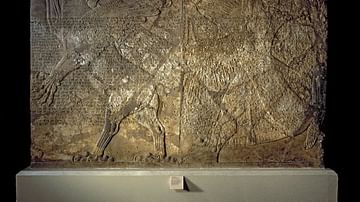
Article
Lugalbanda and the Anzud Bird
Lugalbanda and the Anzud Bird is a Sumerian myth dated to the Ur III Period (2047-1750 BCE) featuring the hero-king of Uruk, Lugalbanda, father of Gilgamesh, in his younger years as an honorable officer in the army. Lugalbanda's purity of...

Definition
Marcus Annaeus Lucanus
Marcus Annaeus Lucanus (39-65 CE), grandson of Seneca the Elder and nephew of Seneca the Younger, was a Roman statesman and Latin poet. Born in Corduba, he came to Rome as an infant and later held the positions of quaestor and augur. Lucan's...
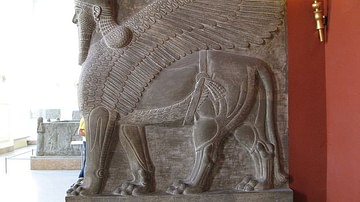
Definition
Tukulti-Ninurta I
Tukulti-Ninurta I (reigned 1244-1208 BCE) was a king of the Assyrian Empire during the period known as the Middle Empire. He was the son of Shalmaneser I (reigned 1274-1245 BCE) who had completed the work of his father, Adad Nirari I, in...

Definition
Sumerian Language
The Sumerian language was spoken in southern Mesopotamia before the 2nd millennium BCE and was the first language to be written in the cuneiform script. It is an isolate language meaning we know of no other languages that relate to it ancestrally...

Definition
Iliad
Homer's Iliad describes the final year of the Trojan War, a legendary conflict between an alliance of Greek cities and the city of Troy in Anatolia. It was probably written in the 8th century BCE after a long oral tradition. The Greeks themselves...
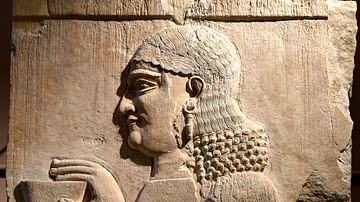
Article
The Iraq Museum: A Brightness in the Darkness
For whom have I labored? For whom have I journeyed? For whom have I suffered? I have gained absolutely nothing for myself, I have only profited the snake, the ground lion! The Epic of Gilgamesh, Tablet XI This is how the Epic of Gilgamesh...
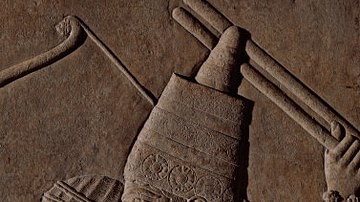
Definition
Ashurbanipal
Ashurbanipal (r. 668-627 BCE, also known as Assurbanipal) was the last of the great kings of Assyria. His name means "the god Ashur is creator of an heir" and he was the son of King Esarhaddon of the Neo-Assyrian Empire. In the Hebrew Tanakh...
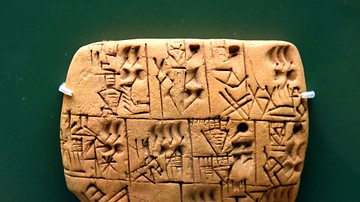
Article
Beer in the Ancient World
The intoxicant known in English as `beer' takes its name from the Latin `bibere' (by way of the German `bier') meaning `to drink' and the Spanish word for beer, cerveza' comes from the Latin word `cerevisia' for `of beer', giving some indication...

Interview
Interview: The Werewolf in the Ancient World by Daniel Ogden
In this interview, World History Encyclopedia is talking to author Daniel Ogden about his new book The Werewolf in the Ancient World. Daniel Ogden (Author): Thank you for inviting me! Kelly (WHE): Of course, we are very excited to have...
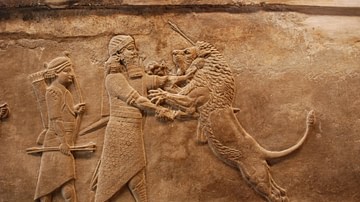
Definition
Mesopotamia
Mesopotamia (from the Greek, meaning 'between two rivers') was an ancient region located in the eastern Mediterranean bounded in the northeast by the Zagros Mountains and in the southeast by the Arabian Plateau, corresponding to modern-day...